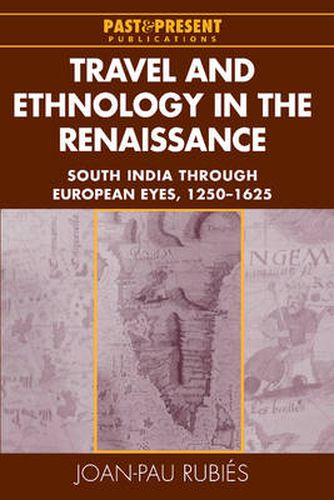Readings Newsletter
Become a Readings Member to make your shopping experience even easier.
Sign in or sign up for free!
You’re not far away from qualifying for FREE standard shipping within Australia
You’ve qualified for FREE standard shipping within Australia
The cart is loading…






This book offers a wide-ranging and ambitious analysis of how European travellers in India developed their perceptions of ethnic, political and religious diversity over three hundred years. It analyses the growth of novel historical and philosophical concerns, from the early and rare examples of medieval travellers such as Marco Polo, through to the more sophisticated narratives of seventeenth-century observers - religious writers such as Jesuit missionaries, or independent antiquarians such as Pietro della Valle. The book’s approach combines the detailed contextual analysis of individual narratives with an original long-term interpretation of the role of cross-cultural encounters in the European Renaissance. An extremely wide range of European sources is discussed, including the often neglected but extremely important Iberian and Italian sources. However, the book also discusses a number of non-European sources, Muslim and Hindu, thereby challenging simplistic interpretations of western ‘orientalism’.
$9.00 standard shipping within Australia
FREE standard shipping within Australia for orders over $100.00
Express & International shipping calculated at checkout
Stock availability can be subject to change without notice. We recommend calling the shop or contacting our online team to check availability of low stock items. Please see our Shopping Online page for more details.
This book offers a wide-ranging and ambitious analysis of how European travellers in India developed their perceptions of ethnic, political and religious diversity over three hundred years. It analyses the growth of novel historical and philosophical concerns, from the early and rare examples of medieval travellers such as Marco Polo, through to the more sophisticated narratives of seventeenth-century observers - religious writers such as Jesuit missionaries, or independent antiquarians such as Pietro della Valle. The book’s approach combines the detailed contextual analysis of individual narratives with an original long-term interpretation of the role of cross-cultural encounters in the European Renaissance. An extremely wide range of European sources is discussed, including the often neglected but extremely important Iberian and Italian sources. However, the book also discusses a number of non-European sources, Muslim and Hindu, thereby challenging simplistic interpretations of western ‘orientalism’.